
Electric inverter includes power inverter, solar inverter and ups inverter. For general users, whether they choose power inverter, solar inverter or ups inverter, the function and purpose are similar, and they all function as inverter power supply. What are their specific differences and advantages, we will explain in detail below.
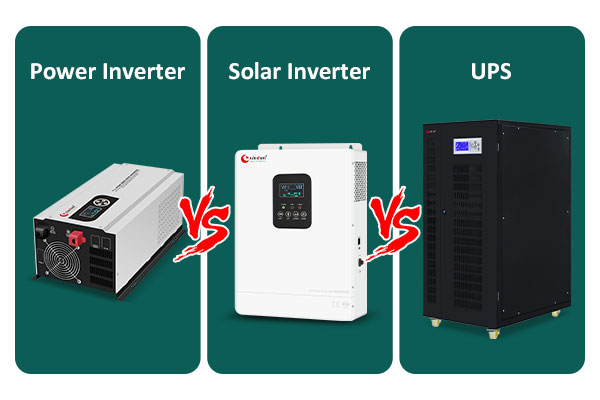
● What is a Solar Inverter?
A solar inverter is an electronic device that converts the direct current generated by photovoltaic panels into alternating current to power homes, buildings and other devices. It is an essential part of a solar system as it converts solar energy into usable electricity. Solar inverters are mainly divided into three categories: off-grid inverters, grid-connected inverters, and hybrid inverters.
● What is Electric Inverter?
On the other hand, an Electric Inverter is a device that converts DC power from a battery or DC power source into AC power. Electric Inverters are commonly used in electric cars, boats and RVs. They are also used in off-grid solar installations, where energy is stored in batteries and then converted to AC power when needed.
● The difference between solar inverter vs electric inverter
The main difference between solar inverter vs electric inverter is the type of electricity they convert. A solar inverter converts DC power from a solar panel to AC power, while an Electric Inverter converts DC power from a battery or DC power supply to AC power. Also, solar inverters are commonly used in solar systems, while Electric Inverters are commonly used in electric cars, ships, etc.
Another difference between the solar inverter vs electric inverter is their output waveforms. Most solar inverters produce a pure sine wave output, providing clean power with no harmonics or distortion. Electric Inverters, on the other hand, can produce modified sine waves, which can damage sensitive electronic equipment.
Finally, solar inverters generally cost more than Electric Inverters. This is because solar inverters require more technology and are generally more complex than Electric Inverters. The cost of a solar inverter can vary, depending on the size and type of solar system, manufacturer, and other factors.
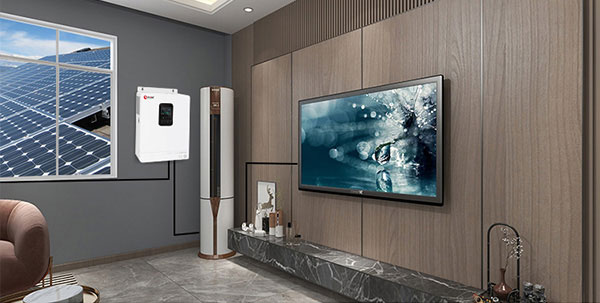
In today's world, there is an increasing need for backup power solutions. Power outages have become part of our daily lives. The use of solar inverter vs UPS has solved this problem. However, there is still confusion as to which backup power solution is best for your needs. In this part, we will understand the difference between a solar inverter vs UPS.
● Definition and function of solar inverter vs UPS
A solar inverter is a device that converts direct current (DC) generated by solar panels into grid-compatible alternating current (AC). Solar inverters are widely used in residential and commercial solar applications. There are three main types of solar inverters: off-grid inverters, grid-connected inverters and hybrid inverters. The type of solar inverter that is best for your application depends on your actual energy needs.
On the other hand, an uninterruptible power supply (UPS) is a device that stores electrical energy in batteries and provides backup power to the load immediately when the main power supply is interrupted. UPSs are commonly used in medical facilities, airports, data centers, and anywhere that continuous power is required.
A UPS protects the load from issues such as electrical spikes, surges, and overvoltages. The function of the UPS does not depend on mains power, but on internal batteries that store electricity.
● Advantages of solar inverter vs UPS
A significant advantage of off-grid solar inverters is that they can significantly reduce the amount of electricity you draw from the grid. Solar systems generate more electricity than the load requires, and the excess energy can be stored in batteries. When the solar energy is unavailable, it can still provide normal power to the load.
The main advantage of a UPS is that it provides continuous, uninterrupted power to your load. Even in the event of a power outage, the power reserves in the UPS batteries keep the load running for extended periods of time. Plus, if you have sensitive equipment like computers, servers, and medical equipment, a UPS also protects your electrical equipment from damage.
● Cost of solar inverter vs UPS
The cost of a solar inverter depends on the type and capacity of the solar system. Complex systems require higher capacity inverters, which means higher costs. Solar systems are also expensive to install. The total cost of installing a solar system will vary depending on the desired power output and the number of solar panels required.
The cost of a UPS varies based on the capacity of the unit. The greater the power output required, the higher the cost. The type of battery used in a UPS also affects the cost of the unit. UPSs are less expensive to install than solar systems.
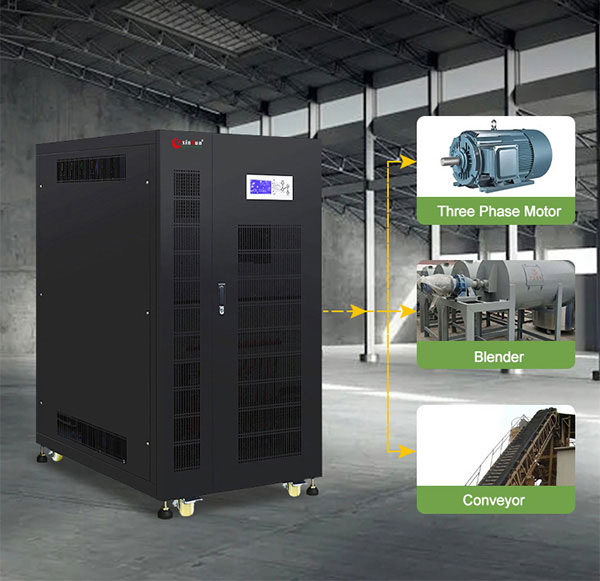
● Power inverter vs UPS-Energy source
One of the most notable differences between Power inverter vs UPS is their power supplies. A power inverter relies on batteries as its primary power source, while a UPS system uses electricity from the grid and stores it in batteries.
A power inverter is a device that converts direct current into alternating current. It takes energy from a battery, such as a car battery or a solar panel, and converts it into a form that can power home appliances. Some common applications for power inverters include powering laptops, televisions, lights, and fans.
A UPS system is a device that provides backup power to electrical appliances in the event of a power outage. Unlike a power inverter, a UPS system does not rely on batteries as its primary power source. Instead, it uses electricity from the grid and stores it in its own batteries. Essentially, the UPS system acts as a buffer between the wall outlet and the appliance.
When there is a power outage, the UPS system immediately switches over to battery power, ensuring your equipment continues to operate without interruption. Some common applications for UPS systems include powering desktop computers, servers, and other sensitive electronic equipment.
● Power inverter vs UPS-Purpose
The purpose of a power inverter is to convert direct current into alternating current in order to power household appliances. On the other hand, the purpose of a UPS system is to provide backup power in the event of a power outage.
● Power inverter vs UPS-Time required to switch to battery power
When a power outage occurs, the power inverter takes some time to switch from mains to battery power. This means there may be a brief interruption in power, causing your device to shut down. A UPS system, on the other hand, immediately switches over to battery power, ensuring your equipment continues to run without interruption.

Both the power inverter vs solar inverter are technologies that convert DC power into AC power, but there are important differences between the two. A power inverter is used to convert the direct current from a battery into alternating current that can be used to power appliances, while a solar inverter is used in solar systems to convert the direct current generated by solar panels into alternating current.
The main difference between a power inverter vs solar inverter is the source of the DC power they convert. Power inverters are often used with batteries that are already charged from an external power source. Solar inverters, on the other hand, are specifically designed to work with solar panels to generate direct current when the sun shines on them.
But there is one thing in common between the power inverter vs solar inverter, both can run using maximum power point tracking (built-in MPPT controller), which means that they constantly adjust the power to get the maximum power output from the solar panel.
Cost is another important factor when considering the difference between power inverter vs solar inverter. Power inverters are generally less expensive than solar inverters because they have fewer components and are less complex. However, the cost of a solar inverter is often offset by the savings from using solar panels to generate electricity.
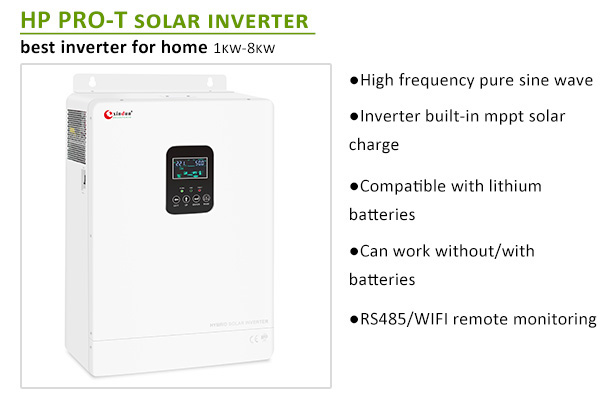
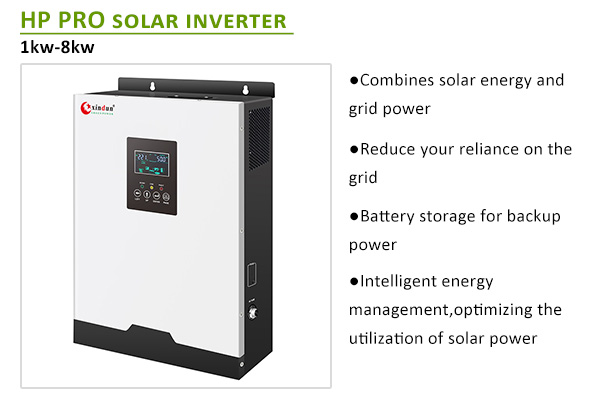
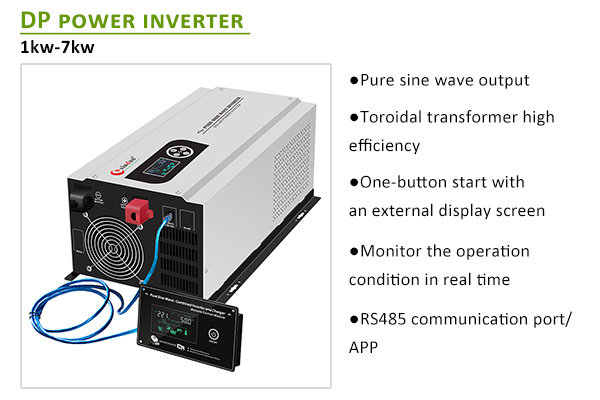
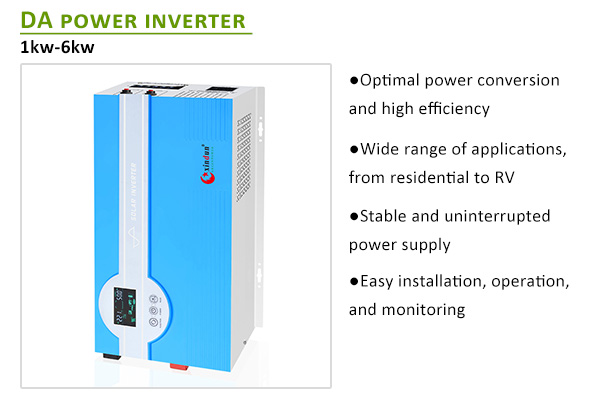
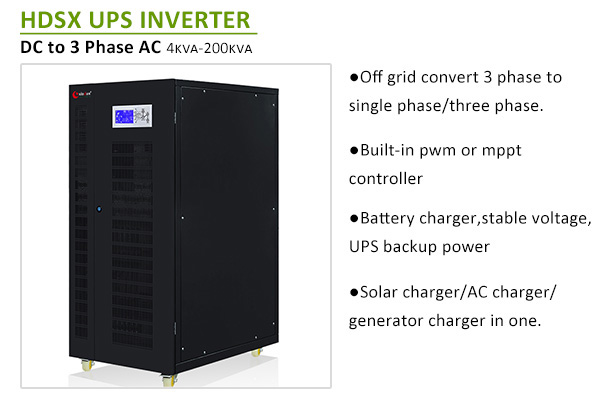
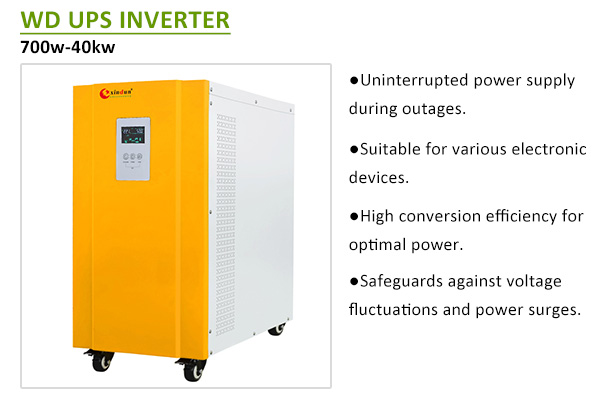
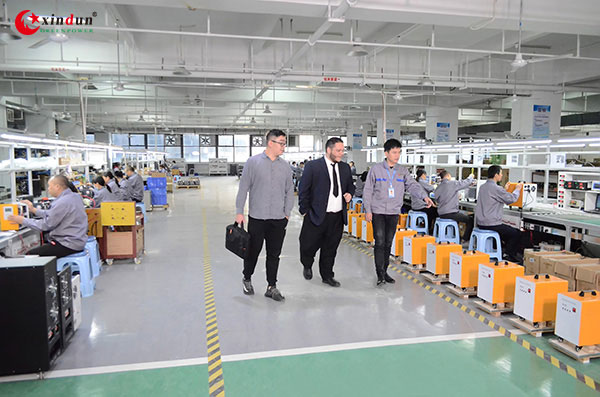
If you are looking for high-quality inverters, the Chinese manufacturer Xindun with more than 16 years of industry experience is your best choice. Focusing on innovation and quality, Xindun Power has developed a series of reliable and high-efficiency inverters, which are in high demand all over the world and have been exported to more than 100 countries and regions. You can follow the steps below to import high-quality inverters from China Xindun Power:
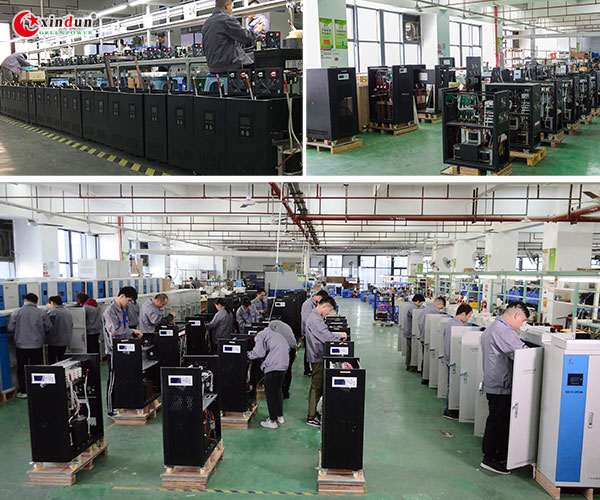
Step 1: Contact Xindun and clarify your requirements
You can contact us by e-mail, telephone or Xindun's website. Our representatives will guide you through the process and provide you with all the necessary information.
Step 2: Learn more and visit the Xindun factory
To get a better understanding of our products and manufacturing process, you can visit Xindun's factory. Our factory covers an area of about 10,000 square meters, equipped with advanced production equipment and testing equipment. In addition, we have a production technical team of more than 100 people and an engineer team of more than 30 people, which can guarantee the production capacity of 10,000 inverters per month. You are welcome to come and meet our team in person.
Step 3: Research Xindun Inverters and Determine the Type of Inverter You Need
Xindun Power provides a complete series of inverters, including low-frequency and high-frequency inverters, single-phase three-phase inverters, hybrid solar inverters, energy storage inverters, power inverters, ups inverters and other off grid inverters, or on off grid inverters. In addition to providing a large number of off-the-shelf wholesale products, Xindun's designers and engineers can customize new inverters according to customer requirements, including trademark design, appearance design, power, voltage and other parameter designs. In addition to inverters, Xindun also provides complete solar system configurations, including controllers, batteries, solar panels, etc. After you research our products and understand your needs, you can determine the best inverter type for your application.
Step 4: Place a sample or bulk order
Once you have determined the type of inverter you need, you can place a sample or bulk order with Xindun Power. We will provide you with a quotation and an approximate delivery time for your order.
Step 5: Begin the R&D production and testing process
After placing the order, Xindun Power will start the R&D production and testing process. We will keep you informed of the progress of your order and provide you with regular production status of your order.
Step 6: Complete production and testing, arrange packing and shipping
Once your order is completed, Xindun Power will arrange packing and shipping. We'll make sure your inverter is safely packed and shipped to your destination. Generally, the delivery time for spot wholesale is about 15-20 days. If it is a customized inverter, it depends on the specific situation.
Step 7: Receive and inspect your shipment
When your shipments arrive, you can inspect them to make sure they meet your specifications and are in good condition. If there is any problem, Xindun Power will solve it together with you.
In short, whether you choose electric inverter, solar inverter, power inverter, or ups inverter, importing inverters from China Xindun is a correct choice, and we also provide comprehensive after-sales services. If you encounter any problems, we will provide professional technical guidance to help you optimize energy allocation and improve power efficiency. Contact Xindun for help today!